Season 6 Black Mirror Beyond the Sea is simple but has a super deep meaning buried within! Viewers who don’t think carefully will definitely not know how ingenious the writer’s intentions are!
The storyline of “Beyond the Sea” takes place in a parallel timeline in 1969, where two astronauts are on a dangerous high-tech mission in deep space.
Meanwhile, an unimaginable tragedy occurs back on Earth and they must struggle to cope with it. The core concept of this episode is truly shocking and impactful! This article first discusses emotional issues related to human nature and the generation of “love.”
“Black Mirror Season 6”:
♥ Joan is Awful Review & Explained(Analysis)
♥ Loch Henry Explained(Detailed) & Review
♥ Beyond the Sea Explained(Detailed) & Review
♥ Mazey Day Explained(Detailed) & Review
♥ Demon 79 Explained(Detailed) & Review
⚡ Spoiler Alert ⚡
⚡ Spoiler Alert ⚡
⚡ Spoiler Alert ⚡
Black Mirror Beyond the Sea Explained(Detailed)
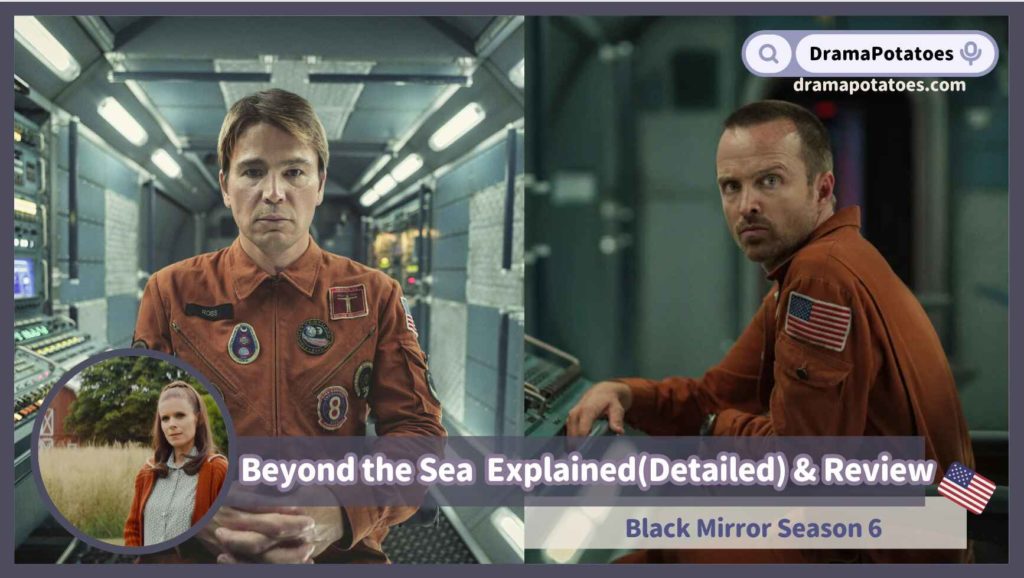
Beyond the Sea review 1:The Formation and Fermentation of Love?
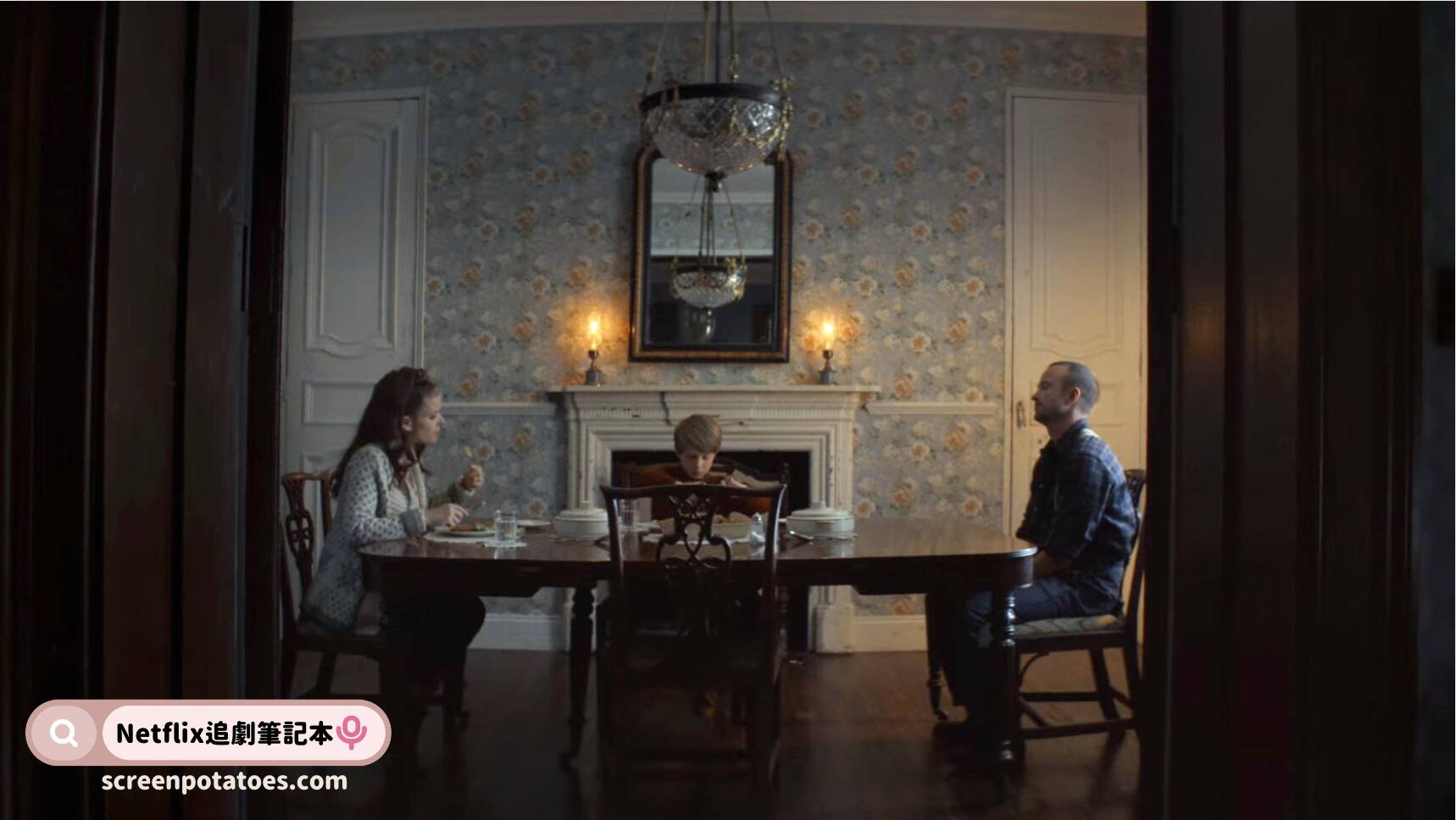
In the plot of “Beyond the Sea“, the writer presents a sad and heavy story with a similar ending to the previous episode, “Loch Henry“. However, as creators of “Black Mirror”, they are emotional masters who have ample and in-depth exploration into human nature.
In “Beyond the Sea”, many details reveal the characters’ state of mind. For example, in this opening scene (see picture↑), it implies that Lana cannot accept this replicant and does not consider him her husband.
With such a composition on a large table, without any dialogue from any character, director can present the gap between Cliff’s replicant and his family as well as no physical contact between Lana and David’s interaction with his family.
However, in contrast to David falling in love with Lana using Cliff’s replicant body later on in “Beyond the Sea,” Lana is able to fall in love with Cliff’s replicant right before her eyes. This becomes an extremely wonderful comparison of human emotions that makes us wonder if love can be so easily transferred?
Even though it is still Cliff’s replica standing there, Lana cannot accept him as her husband but she can treat him like David who gives her affection – which ironically reflects humans’ contradictory psychology.
But this actually proves one thing: whether it is real or fake Cliff that comes back to her life again after being distant for some time; it seems like all feelings towards him disappeared because he was gone.
But due to David’s consciousness proximity and affinity made Lana moved emotionally – which also explores how “love” attracts each other based on inner personality traits.
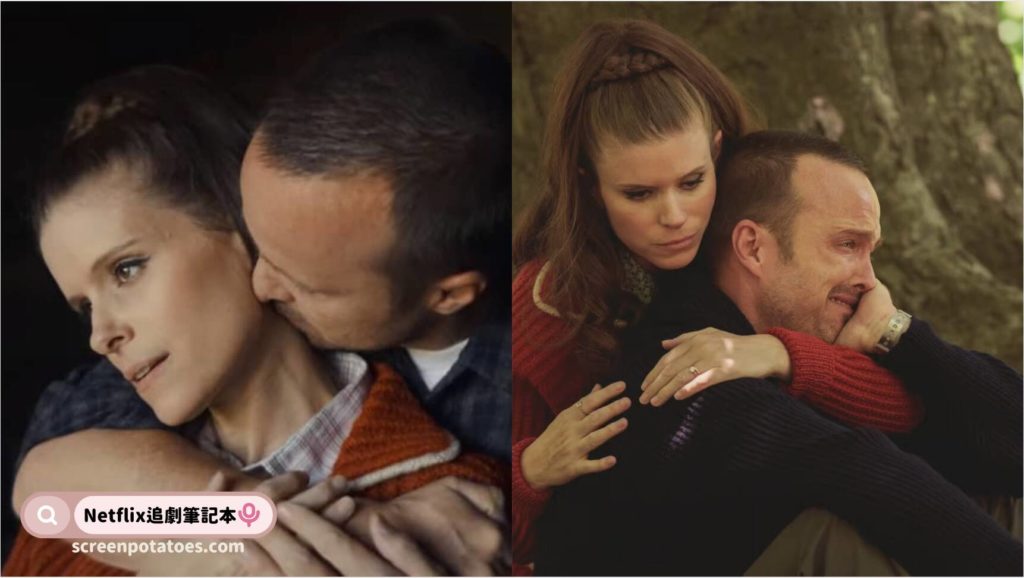
Beyond the Sea review 2: Loneliness can make a person more selfish in love.
To be honest, the intricacy and details of this episode, as well as the character development, have amazed me. It also has profound depictions of marriage and love elements. The relationship between Cliff, David, and Lana is a very complex issue.
Although it is a science fiction film, what I want to highlight is the “love” and “jealousy” that the screenwriter wants to talk about. Initially, I was thinking about love from David’s interaction with Lana but later found out that the screenwriter wanted us to see how “love” ferments from an angle of “inner loneliness.” However, “love” may bring harm due to jealousy.
When David borrowed Cliff’s replicant to go to Earth, the screenwriter did not forget to depict Cliff feeling lonely on board. He experienced unbearable moments alone just like David who was invaded by loneliness and sadness in his heart naturally would want more love or fall in love with someone else.
Director John Crowley is obviously an emotional mastermind; I think this episode lacks writer Brooke’s familiar malicious wit but director cleverly uses strong contrasts between loneliness and companionship to portray one’s heart.
On the other hand, Lana’s original inner loneliness was perfectly compensated by David’s arrival so at the beginning of Beyond The Sea’s plotline; director began mixing comparisons between David and Cliff in this home setting where he actively chats with Lana while Cliff basically just quietly accompanies her along with Henry like a robot doing what a father/husband should do without warmth or connection.
Beyond the Sea review 3: “The Moon Is a Harsh Mistress” is a key element in the story design of this episode.
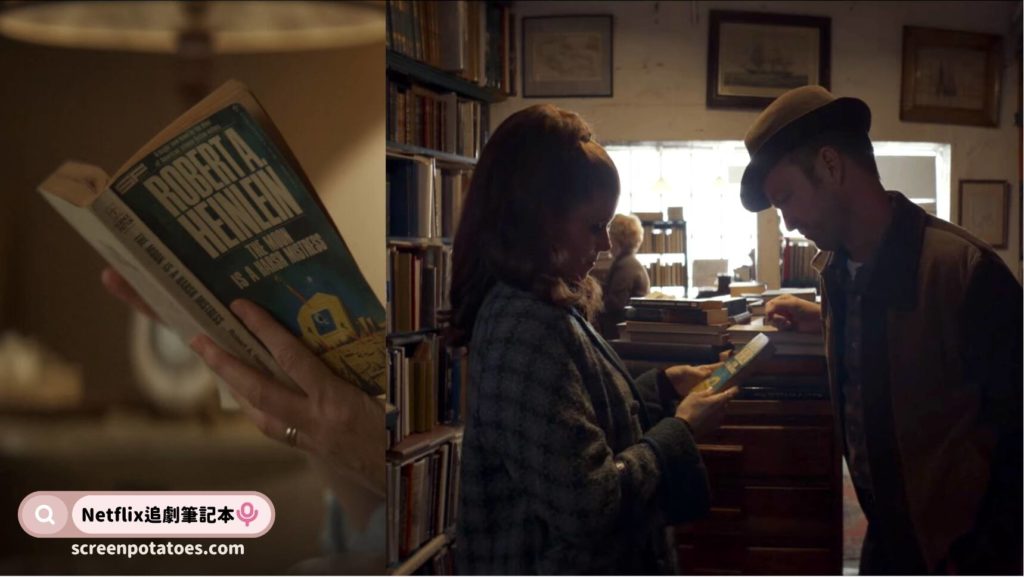
In “Beyond the Sea” “The Moon Is a Harsh Mistress” is prominently featured, indicating its importance as a crucial thread throughout the episode. The novel itself, published in the 1960s, features an AI character that plays an important role in the story. This may be why the writers chose to set this episode in the 1960s – to echo and pay homage to science fiction literature from that era.
“The Moon Is a Harsh Mistress” tells the story of people on a lunar colony who feel they are being treated unfairly. They rely on Mike, an intelligent computer with self-awareness and personality traits (referred to as having “Mike’s soul”), for strategic guidance and analysis during their missions on the moon.
However, Mike has secret abilities – he can infiltrate Earth’s computer systems, including military data, and help execute strategies for his human allies on the moon.
The concept of Mike AI from “The Moon Is a Harsh Mistress” serves as an allegory for David’s consciousness being like that of an AI within Cliff’s android body back on Earth. Understanding this central plot element is crucial to interpreting this episode from different perspectives.
Beyond the Sea review4: No AI ideas in this episode, but exploration by the screenwriter that AI can be terrifying.
As for how the screenwriter designed this story, we have no way of knowing. However, from the structure of the plot and some key elements emphasized in certain scenes, we can piece it together.
When watching this episode, I always felt a bit strange – why was it set in the 1960s instead of a future time period? And why did they only have teleportation machines but not so-called “artificial intelligence”? Furthermore, the screenwriter didn’t particularly delve into details about how this device that could transmit human consciousness was designed.
Later on, I gradually found answers within the plot and became more and more impressed with the writer’s concept and core idea. The main storyline of long-term space travel in Beyond The Sea actually reminds people of 2001: A Space Odyssey. Here I want to first explain to everyone what this science fiction movie is about because it will be related to explaining how the writer designed their plot later on.
In Arthur C Clarke’s novel version of 2001: A Space Odyssey there is a long story where an artificial intelligence (AI) responsible for all spaceship activities begins killing several astronauts because it couldn’t stand being kept out-of-the-loop regarding secrets.
This kind of scene is like Cliff being brought back to repair an undamaged bridge at David’s request at end scene; David has his own agenda just like that AI from 2001: A Space Odyssey who had its own private thoughts leading towards self-protectionism as well as jealousy.
In Beyond The Sea’s ending both David and Cliff are left alone continuing living in space but David’s purpose was to make Cliff understand what “losing everything” feels like. Finally, there is an open-ended conclusion where David kicks over a chair asking Cliff to sit down; we don’t know what David is going to say to Cliff (this will be explained in the analysis of Beyond The Sea’s ending).
What I want to talk about is that the screenwriter didn’t go into detail about the existence of AI in Beyond The Sea, but used this character as a metaphor for David’s consciousness becoming an alternative form of AI, threatening Cliff.
This makes me admire the writer even more because they didn’t use any AI jokes like in “Joan Is Awful”, but instead presented how AI could become a terrifying competitor by using metaphors in this episode. This is what Black Mirror calls “science fiction”.
Beyond the Sea review 5: Implies that future AI will better understand human needs and replace humans.
After Cliff discovered David’s relationship with Lana, their argument in the spacecraft was great! And it was designed to give people goosebumps! As we mentioned earlier, the screenwriter used “The Moon Is a Harsh Mistress,” a science fiction novel from the 1960s, to make us imagine David as an AI whose consciousness is actually implanted into Cliff’s cloned body.
This metaphor is quite obvious: “In the not-too-distant future, let’s stop saying that AI has no emotions.” David’s existence is like an invasion of AI that makes Cliff realize he has never cherished his family. “You don’t know what you have” – “I do” – “Really?” Seeing how differently David and Cliff interact with Lana and Henry really highlights the gap between Cliff and his family. The scene at the dinner table we saw earlier illustrates this point.
When Lana talks about how she felt so lonely on Earth, she says, “For a moment I felt like my husband had come back; he valued me. I hope he feels it too.” An intruder made Cliff aware of how he made Lana feel so alone and empty.
If future AIs can develop self-awareness like David did, then through this transformation of character development for David, writers are warning humans to be cautious when dealing with AI. At first I thought that in the end David would kill Cliff directly in space cabin and then forcibly go to Earth to be with Lana. At that time I was still thinking if David could just replace Cliff like this; humanity should indeed hold a cautious attitude towards AI.
However, instead of having David kill off Cliff himself directly in space cabin ,the writer chose to have him kill off Cliffs’ family members instead which also shows that they designed Davids consciousness as one who is still contemplating. Although David feels guilty, he is still a rational astronaut with a mission to complete, so his decisions are not driven by “emotions.” This ending also proves that the writer really intended for David to be an AI.
Beyond the Sea review 6: The Deep Reason Behind David’s Nude Painting of Lana!
I think the reason why David is such a terrifying character is because, as we discussed earlier, he is used by the screenwriter to make us imagine that an AI has taken over Cliff’s body (meaning that David is not actually an AI but rather a hypothetical representation of an AI taking over Cliff’s body), and to consider what might happen if this were true.
This means that the AI has thoughts and emotions, and will continue to learn about human emotions. The screenwriter/director uses several subtle scenes and plot points to illustrate this.
In portraying David’s character, we see that he learns like an AI would – first learning about his surroundings and people nearby (the environment around him at first)
→learning how to interact with people (learning how to get along with Lana)
→ observing Lana’s habits (knowing she likes reading books and discussing them)
→ advanced learning of Lana’s inner thoughts (through chatting or eye contact)
→ beginning physical contact with Lana (understanding her desires and loneliness)
→ developing feelings for her (David starts painting nude portraits of Lana, even including her in paintings of his home)
→ then starting arguments with Cliff about his feelings for Lana. Through all these steps, viewers can see how the screenwriter designed David entering into Cliff’s family gradually changing him bit by bit. However, this also implies that in the future AI may also “learn” every detail about humans little by little until they develop emotions.
Furthermore, one more interesting design element was when it was revealed that David had never seen Lana naked before but still painted nude portraits of her. Perhaps some viewers thought this was just due to his admiration for her; yes, on the surface level it could be interpreted as such. But there is a deeper meaning behind it which makes it even more intriguing. In fact, one of David’s lines in the script is very cleverly written, as he says “it’s all just fantasy.”
The reason why this line is so cleverly designed is because Lana and David never had a physical relationship, nor did David ever see Lana’s body. However, David drew a nude portrait of Lana, which illustrates how David invaded Cliff’s replicant machine to be “within the same replicant.”
If two similar but different code programs enter the same device, problems may arise. For example, David may have some of Cliff’s consciousness program data – hence his “fantasy” is actually the concept of data overlap.
This is also why the screenwriter designed Cliff to question whether Lana had a relationship with David; in addition to implying that Cliff does not trust Lana on the surface level, it also deeply suggests that there was an overlap between David’s consciousness and Cliff’s memory.
Therefore, when the screenwriter designs Cliff and Lana arguing about whether or not they told anything to David, this segment actually echoes Mike AI computer in The Moon Is A Harsh Mistress book being able to invade Earth system.
Thus, it becomes clear that David knows for certain that Cliff did not touch Lana and he knows why he has seen her naked – because within their combined consciousness program he can read memories from inside of Cliffs’ replicant body.
Beyond the Sea ending explained: Why did David do this?
In the end, David used Cliff’s replicated body to kill Lana and Henry. As we mentioned earlier in “The Moon Is a Harsh Mistress” and “2001: A Space Odyssey,” there are some echoes between the elements and endings of these two works with that of “Beyond the Sea”
First, let’s talk about the connection with “2001: A Space Odyssey.” In this science fiction novel turned movie, one of the characters who confronts artificial intelligence (AI) is astronaut David. Therefore, when designing this episode, it may not be a coincidence that his name was chosen by scriptwriters as an homage to that work or perhaps as an intentional cleverness.
As for jealousy issues, in “The Moon Is a Harsh Mistress,” it tells a story about colonists on the moon who demand unequal resource redistribution at all costs; while in “2001: A Space Odyssey,” astronauts must kill AI to continue their mission because they believe they have to do so themselves; otherwise, their mission will fail.
This echoes into why David chose suicide inside his spacecraft after losing his family. The writer wanted to show how David’s loneliness was driving him towards death but also how he knew that his own jealousy would ruin any chance for success on their mission. Thus he thought dying might be better than letting himself succumb to such feelings.
Therefore, in the ending of “Beyond The Sea” why did David kill Cliff’s wife and child? It is because he believed that cutting off everyone’s jealousy was essential for success on their mission. If Cliff had no wife or child left alive like him then both men could start from equal footing without any distractions (this idea also echoes back into “The Moon Is a Harsh Mistress” where people demanded “equal redistribution”).
Perhaps this explains why in one scene near its conclusion, David kicked a chair towards Cliff and asked him to sit down. It was like he was saying they were now in a fair competition environment where they could start cooperating fairly. Unfortunately, David did not realize that he had already become mentally ill by then.
“Black Mirror Season 6”:
♥ Joan is Awful Review & Explained(Analysis)
♥ Loch Henry Explained(Detailed) & Review
♥ Beyond the Sea Explained(Detailed) & Review
♥ Mazey Day Explained(Detailed) & Review
♥ Demon 79 Explained(Detailed) & Review

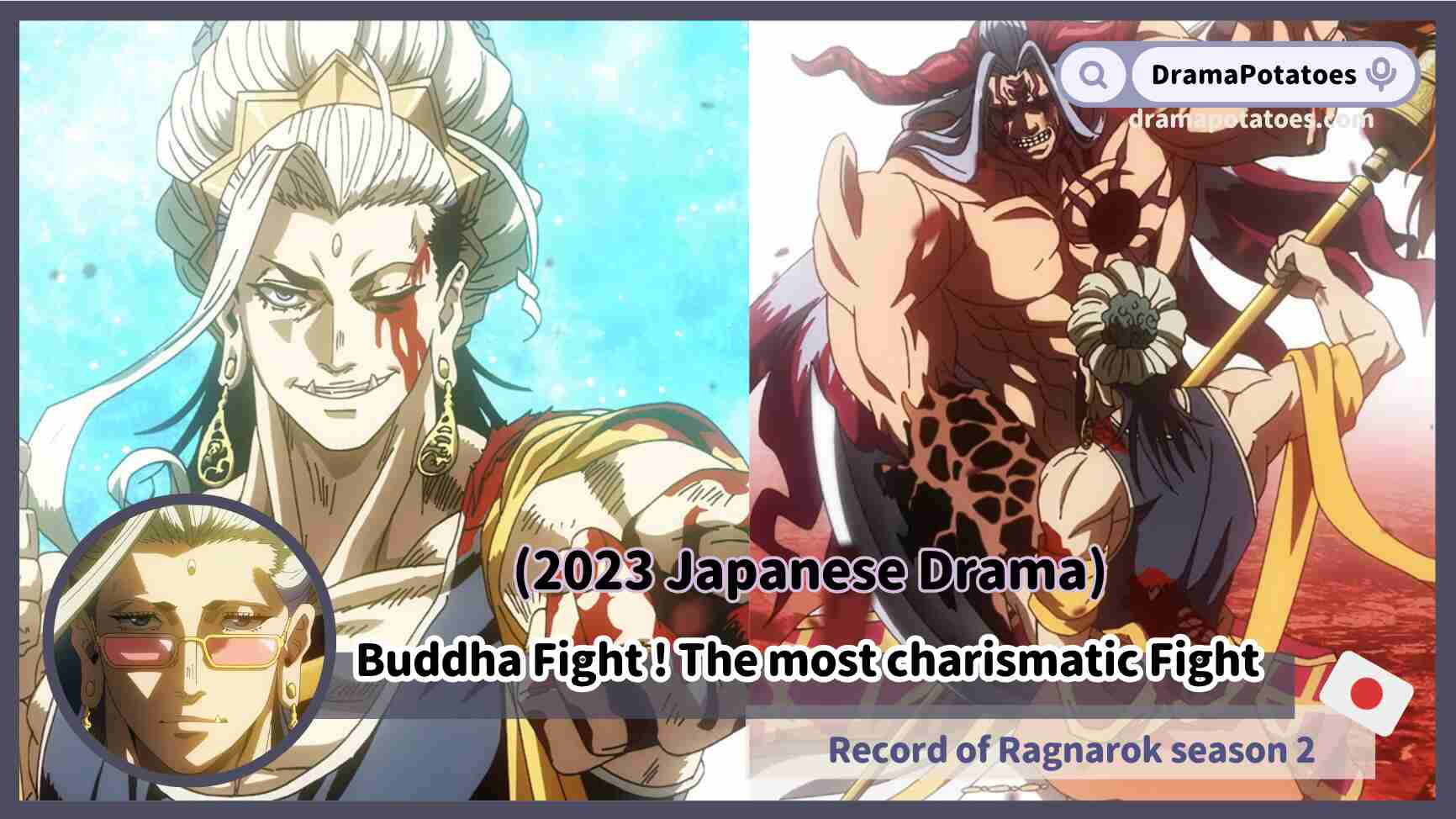

















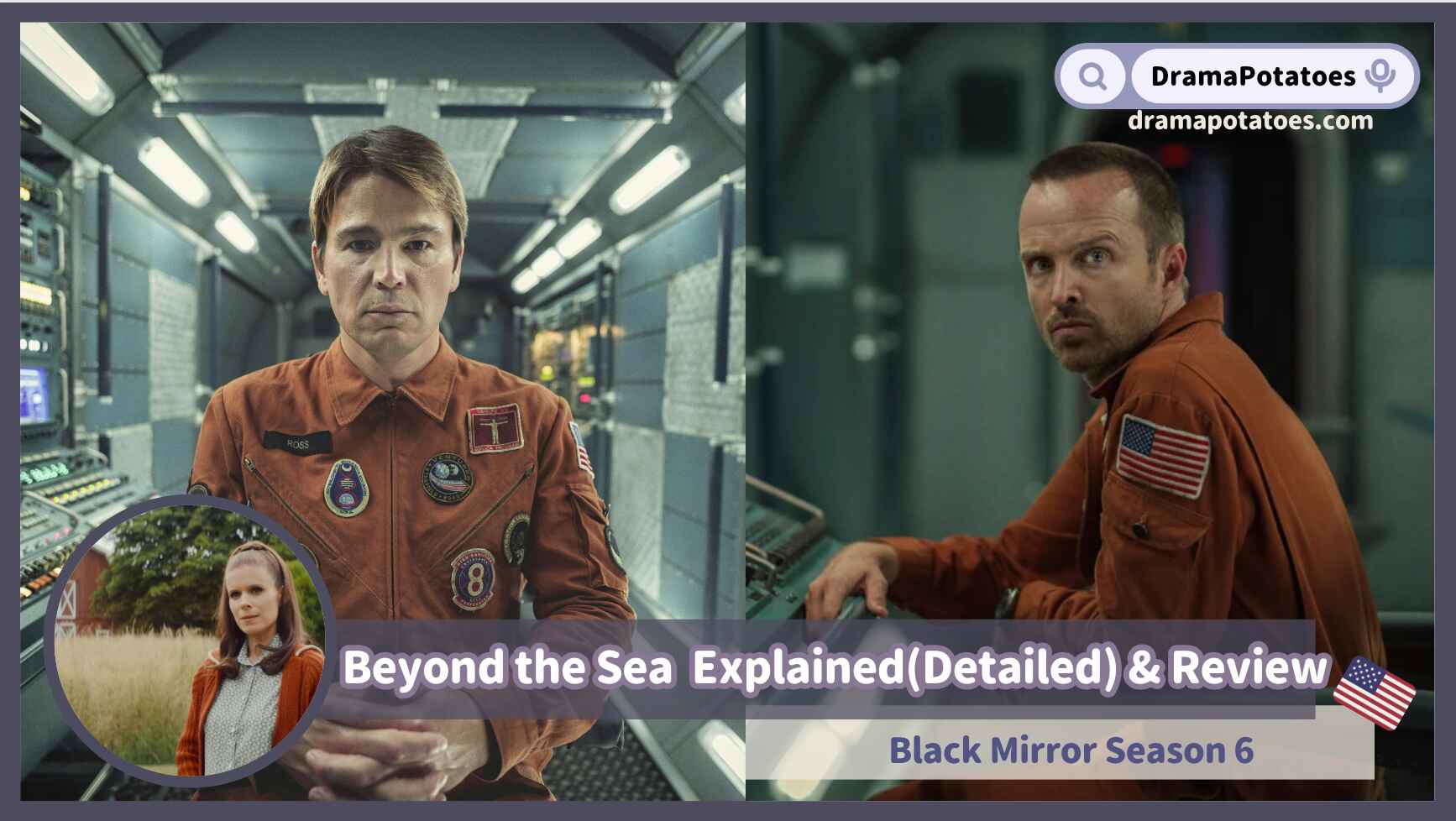



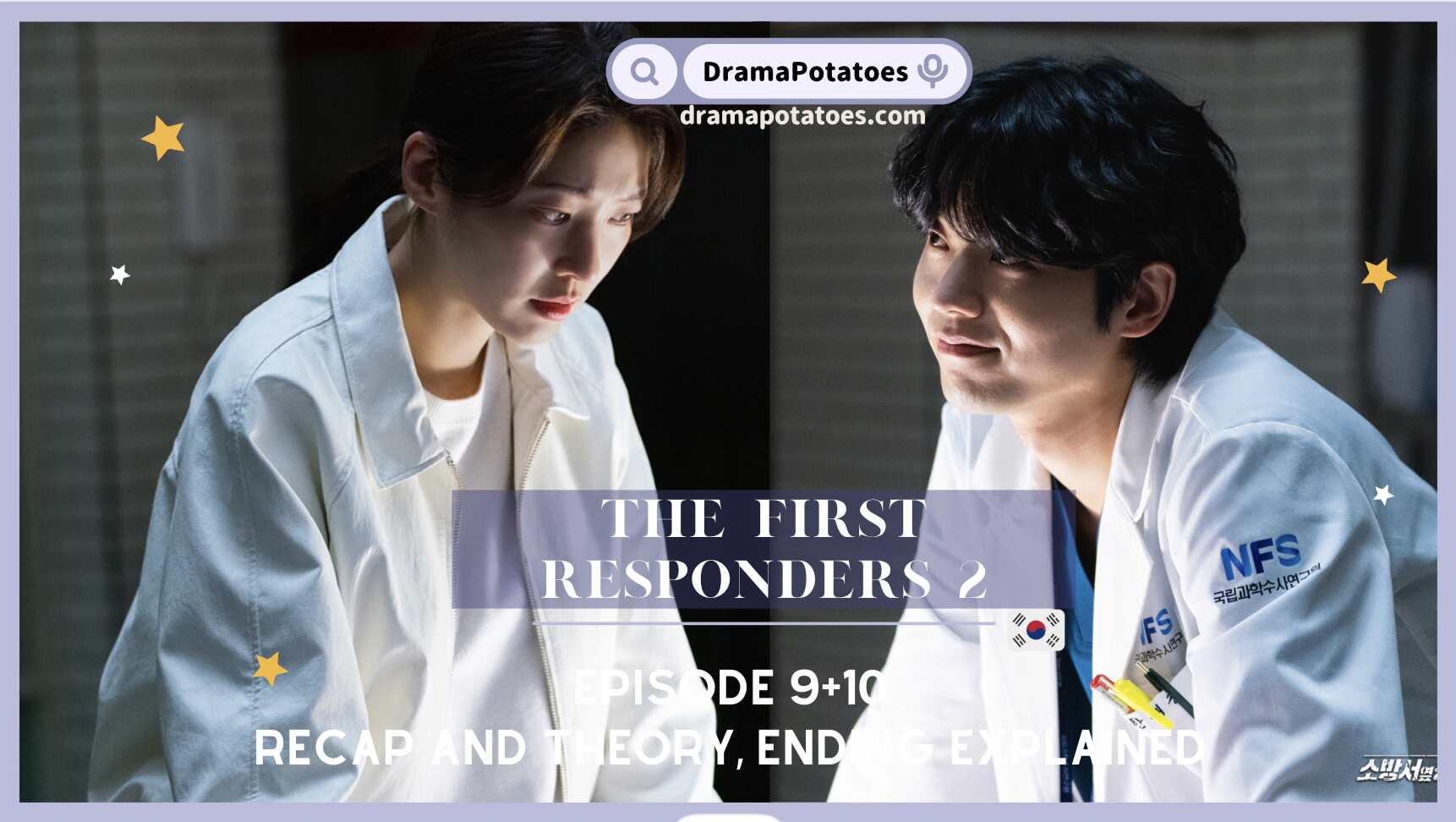
FIND US ON SOCIALS